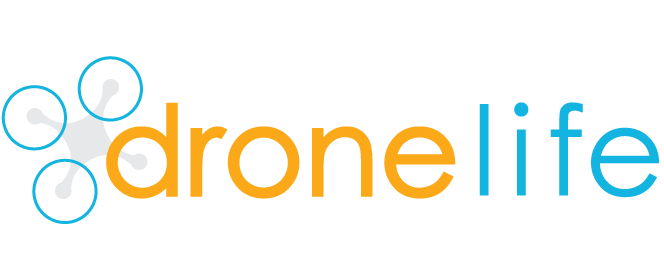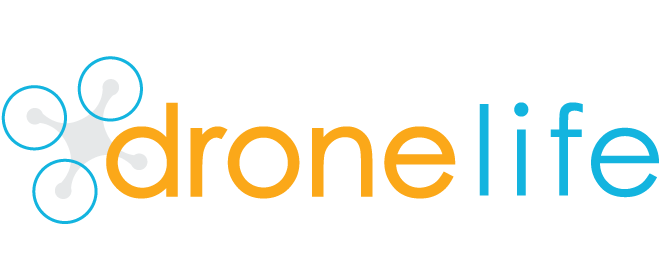
In an intriguing legal case in Michigan, a seemingly mundane zoning dispute has unexpectedly become the center of attention for the entire nation. What initially seems like a local matter has far-reaching implications for drone law and privacy rights, making it a case of national importance. This legal battle has sparked a heated debate about whether drone images obtained over private property can be used as evidence in civil enforcement actions. Additionally, it raises concerns about property owners’ Fourth Amendment rights and whether they should be protected from unlawful searches. With the Michigan Supreme Court set to issue a final ruling next spring, the outcome of this case could potentially shape the future of drone operations, impacting not only municipalities and police departments but also commercial ventures.
Background of the Obscure Legal Case

This image is property of dronelife.com.
Introduction to the Michigan zoning dispute
In a lesser-known legal case in Michigan, a zoning dispute has emerged, which has the potential to have wide-reaching implications. The case centers around the use of drones and raises important questions about privacy rights and drone law. This case serves as a stark reminder of the evolving legal landscape surrounding drone usage and its impact on individuals and communities.
The national implications of the case
While the Michigan zoning dispute may seem localized, its potential national implications cannot be overlooked. As courts grapple with the ever-changing landscape of technology and its impact on privacy rights, this case could set a precedent that extends well beyond the state’s borders. The decisions made in the context of this case may influence future legal battles regarding drone usage and privacy rights throughout the United States.
The role of drone law and privacy rights in the case
The heart of the legal dispute revolves around drone law and the fundamental right to privacy. The use of drones has raised concerns about individuals’ privacy being violated, leading to increased scrutiny from lawmakers and policymakers. This case provides an opportunity for courts to determine the extent of privacy protection that should be afforded to individuals in relation to drone usage and to clarify the boundaries of drone law.
Key Questions Raised by the Case
Can drone images obtained over private property be used as evidence?
One of the key questions raised by the Michigan zoning dispute is whether drone images obtained over private property can be used as evidence in civil enforcement actions. This creates a tension between the desire for law enforcement agencies to gather evidence efficiently and the potential invasion of privacy for individuals whose properties are being captured by drones. The Court’s ruling will shed light on the legality and admissibility of drone images as evidence.
What are the implications for property owners’ Fourth Amendment rights?
The case also raises important questions regarding property owners’ Fourth Amendment rights, which protect individuals from unreasonable searches and seizures by the government. The use of drones to capture images or gather information without consent may infringe upon these constitutional rights. By examining the case, the Court will have the opportunity to weigh the privacy rights of individuals against the needs of law enforcement agencies to carry out their duties effectively.
The potential impact on civil enforcement actions
The outcome of the Michigan zoning dispute has the potential to significantly impact civil enforcement actions. If it is determined that drone images obtained over private property can be used as evidence, this could lead to an increase in the use of drones for surveillance purposes by government agencies, potentially infringing upon the privacy of individuals. Conversely, if the Court decides that such evidence is inadmissible, it may limit the ability of authorities to use drones effectively in civil enforcement actions.
Timeline of the Legal Proceedings
Start of the legal dispute in Michigan
The legal dispute in Michigan began when a zoning issue arose between a property owner and the local authorities. The property owner claimed that their privacy was violated when a drone was flown over their property without their consent. This initial conflict led to a protracted legal battle that has attracted attention from legal experts and advocacy groups alike.
Important milestones and court decisions
Throughout the legal proceedings, several important milestones and court decisions have shaped the direction of the case. From initial motions to dismiss to appeals and requests for injunctive relief, the case has taken various twists and turns. Interim rulings by lower courts have set the stage for the final ruling by the Michigan Supreme Court.
Expected final ruling by the Michigan Supreme Court
The Michigan Supreme Court is expected to issue its final ruling on the case next spring. Legal experts and stakeholders eagerly await this decision, as it will have significant implications for the state and potentially set a precedent for future cases. The ruling will clarify the legal stance on drone usage, privacy rights, and the admissibility of drone-obtained evidence in Michigan.
Broader Implications for Municipalities and Police Departments
The use of drones for civil investigations
For municipalities and police departments, drones have become an increasingly valuable tool for civil investigations. Drones provide a cost-effective and efficient way to gather evidence, survey crime scenes, and monitor potentially dangerous situations. However, the Michigan zoning dispute calls into question the boundaries and limitations of drone usage in civil investigations.

This image is property of dronelife.com.
Implications for child protective services
Another area directly impacted by the Michigan case is child protective services. These agencies often rely on drones to monitor and assess the safety of children in abusive or neglectful situations. The ruling in this case will likely shape the guidelines and protocols that such agencies need to follow in order to ensure compliance with privacy rights while fulfilling their duty to protect vulnerable children.
Relevance of the case for public agencies
The outcome of the Michigan zoning dispute will have lasting relevance for public agencies beyond law enforcement. Departments such as transportation, land management, and environmental protection also utilize drones in their day-to-day operations. The legal decision in this case will play a crucial role in guiding these agencies’ use of drones and ensuring that privacy concerns are appropriately addressed.
The Trespass and Illegal Search Argument
Overview of the legal argument
The crux of the dispute in the Michigan zoning case centers around the legal argument of trespass and the alleged illegal search conducted through drone flights over private property. The property owner asserts that the drone’s flight violated their property rights, which should be protected by the law. This argument raises significant questions about the acceptable boundaries of drone flights and the value of property owners’ consent.
Low-altitude drone flights over private property
An important aspect of the legal argument in this case revolves around low-altitude drone flights over private property. While airspace above private property is generally considered public, the issue arises when drones fly at lower altitudes potentially infringing upon the privacy and property rights of individuals. This case provides an opportunity for courts to clarify the rights and boundaries of property owners against drone flights.
Examining the concept of trespass in the case
The concept of trespass takes center stage in the Michigan zoning dispute. The property owner contends that the drone’s flight constituted a trespass onto their property, violating their right to exclusivity and privacy. The Court’s ruling will determine whether this concept of trespass extends to low-altitude drone flights and, consequently, whether such flights can be deemed illegal searches under the law.
Perspectives from Advocacy Groups
The American Civil Liberties Union of Michigan’s stance
The American Civil Liberties Union (ACLU) of Michigan has taken a strong stance in this case, arguing against indiscriminate drone use by public agencies. The ACLU believes that individuals’ privacy rights should be protected and that drone usage should be subject to strict regulations. They contend that the outcome of this case will set a precedent for future drone-related litigation and shape the balance between surveillance needs and individual privacy.
Arguments presented by the Mackinac Center for Public Policy
Conversely, the Mackinac Center for Public Policy presents arguments aimed at preserving the government’s ability to effectively carry out its duties without unnecessary restrictions. They argue that drones provide valuable tools for maintaining public safety and enforcing the law. Balancing the interests of privacy and security is essential, and the Mackinac Center’s perspective highlights the potential benefits of drones in various public agencies.
The impact of public opinion on the case
Public opinion plays a crucial role in legal disputes such as this one. The Michigan zoning dispute has garnered significant attention, prompting discussions on privacy, property rights, and the use of drones. As public awareness of the case grows, it may influence the Court’s final decision, particularly if public sentiment leans strongly in favor of protecting privacy rights or supporting the effective use of drones by government agencies.
The Influence on Commercial Drone Operations
Potential implications for commercial drone operators
The outcome of the Michigan zoning dispute has far-reaching implications for commercial drone operators. Regulations surrounding drone usage, particularly in relation to privacy rights, can significantly impact the ability of businesses to operate. Depending on the Court’s ruling, stricter regulations may be imposed, requiring commercial drone operators to navigate additional legal hurdles and potentially altering the landscape of the industry.
Challenges and changes to drone regulations
Commercial drone operators already face various challenges when it comes to complying with existing regulations. The Michigan case may contribute to further changes in drone regulations, introducing new requirements and restrictions aimed at safeguarding privacy rights. As the legal framework for drone operations evolves, businesses will need to adapt and ensure they are able to meet the evolving standards set by lawmakers and courts.
The significance of the case for the industry
The outcome of the Michigan zoning dispute holds immense significance for the commercial drone industry. As legal battles like this continue to shape the regulations and public perception surrounding drones, the industry must be prepared to navigate potential changes. Compliance with drone laws and regulations is crucial for businesses to maintain their operations, protect privacy rights, and build trust with the communities they serve.
In conclusion, this obscure legal case in Michigan concerning a zoning dispute may seem confined to a specific locality, but its implications stretch far beyond state borders. The case raises critical questions about drone law, privacy rights, and the admissibility of drone-obtained evidence. It has the potential to impact civil enforcement actions, property owners’ Fourth Amendment rights, public agencies’ use of drones, and even commercial drone operators. As the legal proceedings unfold and the Michigan Supreme Court prepares to issue its final ruling, the implications for both individuals and various sectors of society remain significant. Keep abreast of these developments as they will shape the evolving landscape of drone law and technology.

